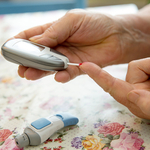It should go without saying that the sooner someone with an alcohol use disorder gets help—the better. As is the case with any form of substance use disorder. Yet, more often than not, people living with the disease of addiction resist recovery, even when they know how desperately they are in need. It is one of the paradoxes of mental illness. Our mind tells us that what we are doing is, in fact, killing us. But, try as we might, mustering up the strength and courage to seek assistance flies in the face of a disease that is constantly telling you that you are OK.
Couple such conflicting feelings with the stigma that lingers around people with any form of mental illness, and the obstacles to getting treatment become fiercer. In many cases the reason people seek treatment is the desire to put the pieces of one’s life back together. That is, get family and friends back, or be in a position to form new relationships. Others will say they were tired of being homeless, or having to constantly find new jobs every time a boss got wise to their condition. The list of reasons could probably go on ad infinitum, but perhaps the most important reason to seek treatment is to stop or even reverse the physical/mental damage that drugs and alcohol do to the mind and body.
Once again, it seems like the list of conditions that can arise from long-term alcohol and substance abuse grows with each passing year. Some of which can be deadly. While most people are aware that an unhealthy relationship with alcohol can lead to cirrhosis of the liver, pancreatic cancer, et al., there are a number of other potentially fatal health problems that can spring from heavy alcohol use. Therefore, it is so vital that brakes be applied to the wheel of addiction, sooner rather than later.
Alcohol Abuse Driven Diabetes
Men and women, without any doubt, consume alcohol in different ways and in different quantities. Most of the time. What’s more, how people drink and the problems that behaviors like “binge drinking” (typically happens when men consume 5 or more drinks or women consume 4 or more drinks in about 2 hours) can lead to down the road, are different depending on gender. This is important to keep in mind. While men binge drink more often than women, women who engage in the practice may be at risk of health problems that have not been associated with male binge drinkers.
A study published in the open access journal BMC Public Healthindicates that women who engage in binge drinking are at a heightened risk of type 2 diabetes, later in life, ScienceDaily reports. The association held true even after adjusting for BMI, hypertension and smoking. The researchers did not find the same correlation among male binge drinkers over a 27-year period. Lead author, Dr Karina Nygren of Umea University, Sweden, said:
“Our findings show that high alcohol consumption from ages 16 to 43 is associated with higher blood glucose levels in women but not in men. Because higher blood glucose is a risk factor for the development of type 2 diabetes, our data suggest that informing people about the risk of high alcohol consumption at a young age could have positive health impacts further down the line.”
Treatment Will Save Life
If you are female binge drinker, it doesn’t mean that you have an alcohol use disorder—necessarily. However, those who binge drink over the course of many years are more likely to be dependent on alcohol, or at the very least an unhealthy relationship with the substance. If your life is unmanageable, and you make promises to yourself about drinking that you are unable to fulfill, you would be wise to consult professionals. The longer one puts it off, the worse it gets—trust us on this one.
For others, you may already know that you are living with an alcohol use disorder. If that is the case please contact Hope By The Sea immediately. We can introduce you to the lifesaving mission of addiction recovery, providing you with skills and tools to help keep your addiction at bay so that you can live a healthy, fulfilling life.


